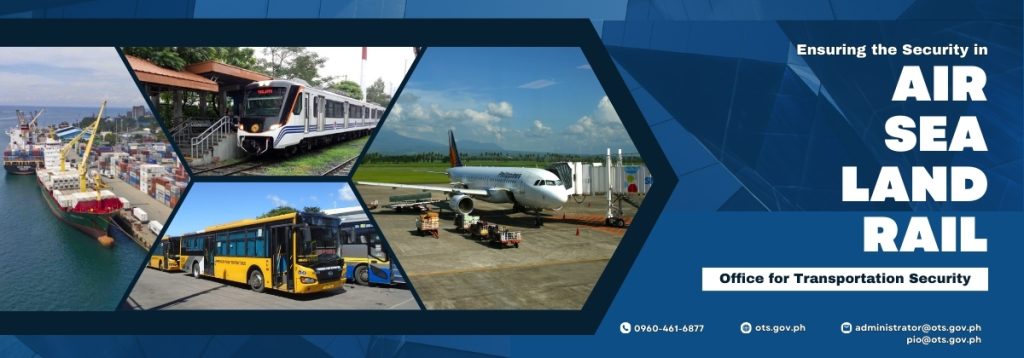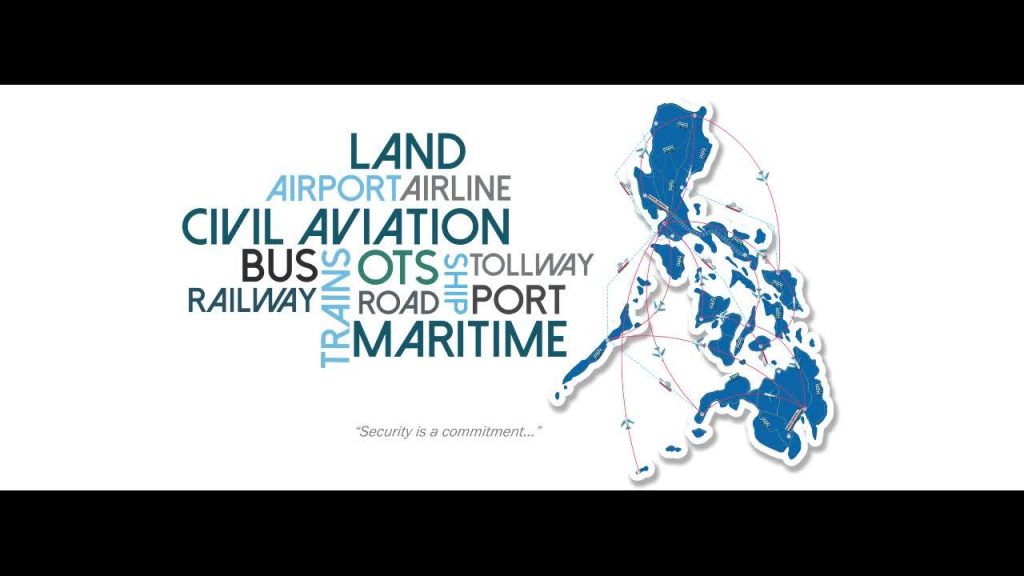The Office for Transportation Security (OTS) is the Philippine government agency responsible for guaranteeing the security of the country’s transportation systems. This includes civil aviation, sea transport, maritime infrastructure, and land transportation. The OTS enforces security measures. It oversees measures to protect these sectors from terrorism and other threats.
The OTS was founded in response to global and national security incidents. It was established to protect the country’s transportation infrastructure. It operates under international guidelines and collaborates with various agencies, including the Department of Transportation (DOTr) to maintain and enhance security standards and neutralize all kinds of threats across all modes of transportation.
What is OTS?
OTS stands for the Office for Transportation Security. It is an agency that serves as the key authority when it comes to the security of transportation systems in the Philippines. It was created as an attached agency of the DOTr. The OTS was designed to address the evolving threats to aviation, maritime, and land transportation by implementing strong security measures and policies. OTS works with groups like the International Civil Aviation Organization (ICAO) and the International Maritime Organization (IMO), aligning its security protocols with global standards.
OTS is the sole authority on transport security. It ensures the safety of passengers, cargo, and transportation infrastructure. It enforces compliance and oversees security. It makes policies to reduce risks and respond well to incidents. The agency has a thorough approach. It includes screening, training, and ongoing assessment of security.

Brief History
The OTS was created in response to significant terrorist attacks, both domestically and internationally. The turning point was the May 1976 hijacking of a PAL flight by the Moro National Liberation Front (MNLF), which underscored the need for stringent aviation security. The 9/11 attacks on the US Pentagon Twin Towers further highlighted the vulnerability of transportation systems, leading to an overhaul of transport security measures.
Following international mandates, the Philippines, a contracting state to both the ICAO and IMO, established the OTS. It came about thanks to Executive Orders No. 277 and No. 311 in 2004. These orders created and assigned the OTS the responsibility of implementing aviation, maritime, and land transportation security standards.
Organizational Principles of OTS: Mission, Vision, and Core Values
The organizational principles of the OTS reflect its commitment to safeguarding the land-, sea-, and air-based transportation systems within the country. The following principles guide the OTS in fulfilling its mission, aspiring towards its vision, and upholding its core values.

Mission
The OTS regulates and oversees compliance with policies and programs to secure the transportation system.
Vision
By 2028, the OTS aims to be an internationally recognized organization that is highly competent, credible, dynamic, and responsive to the evolving global transportation security environment.
Core Values
- Unity: “United we stand, divided we fall.”
- Competence: “If you want to be successful, don’t seek success, seek competence, do nothing short of the best that you can do.”
- Integrity: “Integrity is choosing your thoughts and actions based on values rather than personal gain.”
- Service: “Service to others is the rent you pay for your room here on earth.”
Mandates
The OTS is designated as the sole authority responsible for the security of the transportation systems in the Philippines, including:
- Civil Aviation: Implementing Annex 17 to the Chicago Convention and the National Civil Aviation Security Program (NCASP).
- Sea Transport & Maritime Infrastructure: Implementing the International Ship and Port Facility Security (ISPS) Code and developing a national security program.
- Land Transportation, Rail System & Infrastructure: Developing and implementing a national security program.
Powers and Functions
The powers and functions of the OTS define its authority and responsibilities in maintaining the security of the Philippines’ transportation systems. These powers enable OTS to implement and enforce comprehensive security measures across all modes of transport.
- Assume the functions of the National Civil Aviation Security Committee (NCASC).
- Exercise operational control over law enforcement units providing security in transportation systems.
- Oversee screening of passengers, baggage, and cargoes.
- Formulate and implement comprehensive security plans and policies.
- Audit the performance of transportation security personnel and facilities.
- Prepare manuals and master plans
- Prescribe safety standards for all transportation systems.
- Issue and amend transportation security regulations.
- Coordinate with law enforcement agencies for investigation and prosecution of security breaches.
- Perform other functions as directed by the DOTr (formerly Department of Transportation and Communications (DOTC)) Secretary.
Services Offered
The OTS provides a range of services to ensure the safety of the country’s transportation systems. These services are designed to support and enhance the implementation of security measures across various modes of transport.
Accreditation and Certification
OTS offers accreditation and certification services to validate the compliance of transportation entities with security standards. This ensures that all entities involved in transportation meet the required security protocols.
- Approval of Airport Operators Security Programme (AOSP)
OTS reviews and approves the security programs of airport operators to ensure they meet national and international security standards. This approval process helps maintain a secure aviation environment.
- Approval of Airport Security Programme (ASP)
The agency evaluates and approves individual airport security programs, ensuring comprehensive security measures are in place. This helps in maintaining high security standards at all airports.
- Issuance of International Ship Security Certificate (ISSC)
OTS issues the ISSC to ships that comply with the International Ship and Port Facility Security (ISPS) Code. This certification is crucial for international maritime operations and security compliance.
- Issuance of National Ship Security Certificate (NSSC)
The NSSC is issued to domestic ships meeting national security standards. This certification ensures that national maritime security protocols are adhered to by domestic vessels.
- Issuance of Statement of Compliance for Port Facility (SCPF)
OTS provides the SCPF to port facilities that comply with the ISPS Code. This statement ensures that port facilities are equipped with appropriate security measures.
- Training and certification of transportation security personnel
OTS conducts training programs and certifies security personnel to ensure they are skilled and knowledgeable in security protocols. This training is essential for maintaining a high standard of security operations across all transportation modes.
Video: OTS Disinfects Outlying Security Stations
For a better understanding of what the OTS does, watch this video as the OTS inadvertently takes you on a tour as it disinfects facilities and outlying security stations.
Summary
The Office for Transportation Security (OTS) is a pivotal agency ensuring the safety and security of the Philippines’ transportation systems. Established in response to international security demands, it oversees aviation, maritime, and land transportation security. The OTS enforces compliance, implements comprehensive security measures, and coordinates with various agencies to safeguard the country’s transportation infrastructure. Through its mission and core values, the OTS aims to be a globally recognized leader in transportation security by 2028.
Contact Information
For more information or to get in touch with the Office for Transportation Security, you can contact:
Office for Transportation Security (OTS) – Office of the Administrator
Office Address: CMC Building Andrews Ave. cor. Aurora Blvd., Pasay City, Philippines
Asec. Jose A. Briones Jr., Officer-in-Charge, OTS / Deputy Administrator
Email: administrator@ots.gov.ph, oda@ots.gov.ph, records@ots.gov.ph
Tel. No.: (02) 8-853-2607
Public Affairs Division: (02) 8-855-2735